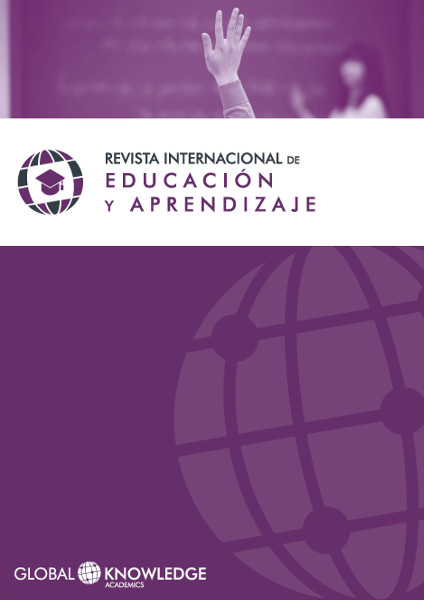Analysis of Factors Contributing to Academic Success in College Students: Estudy of Four Cases of the University of Colima
DOI:
https://doi.org/10.37467/gka-revedu.v3.593Keywords:
Academic Success, School Failure, College Student, School Performance, Study HabitsAbstract
If we consider success to be the ability of an individual to define their life’s purpose, develop their cognitive, emotional, physical potential and to instill values in others (Amaya and Prado, 2002), then it is of great importance to identify the factors that aid an individual in an academic setting. According to Melavé (2001), students who are academically successful are highly motivated, have a positive attitude towards their chosen career and have good study habits, all of which may be related to the school performance, defined by Pérez, Ramón and Sánchez (2000) as the sum of different and complex factors of the learner, measured by test scores with a quantitative assessment, whose results indicate a passed or failed course, attrition and level of academic success. With the purpose of identifying and improving factors that contribute to academic success, as well as implementing strategies in order for students to successfully complete their degree, a qualitative research study was conducted through in-depth interviews with four students in the 2010-2014 class, whom had above average school performance in their major. Each one came from a different area of training: health sciences, engineering, humanities and economic-administrative affairs. A categorical analysis was performed out on the interviews with the software MAXqda. The results show that study habits, time management, family support and prioritization of activities are factors that promote academic success.
Downloads
Global Statistics ℹ️
|
4669
Views
|
8109
Downloads
|
|
12778
Total
|
|
References
Amaya, J. y Prado, E. (2002). Estrategias de aprendizaje para universitarios. Un enfoque constructivista. México: Editorial trillas.
Castañeda, J. (2003). Habilidades Académicas. México, D.F: Mc Graw Hill.
Cedillo, R. (2012). Informe de labores 2012. Colima: Universidad de Colima.
Garbanzo, G. (junio 2007). Factores asociados al rendimiento académico en estudiantes universitarios, una reflexión desde la calidad de la educación superior pública. Revista Educación 31 (1), pp. 43-63. DOI: https://doi.org/10.15517/revedu.v31i1.1252
Gatica,F., Méndez, I., Sánchez, M. y Martínez, A. (Septiembre – Octubre 2010). Variables asociadas al éxito académico en estudiantes de la Licenciatura en Medicina de la UNAM. Revista de la Facultad de Medicina de la UNAM, 53 (5), pp. 9-18.
Gómez, D., Oviedo, R. y Martínez, E. (Mayo – Agosto 2011). Factores que influyen en el rendimiento académico del estudiante universitario. Tecnociencia Chihuahua, V (2), pp. 90-97.
Malavé, I. (2001). Características psicosociales del estudiante exitoso de la carrera ingeniería industrial en la universidad nacional abierta . Universidad Nacional Abierta.
Organización de las Naciones Unidas para la Educación, la Ciencia y la Cultura (2004). Participación de las familias en la Educación Infantil Latinoamericana. Santiago, Chile: UNESCO. Disponible en: http://unesdoc.unesco.org/images/0013/001390/139030s.pdf
Pérez, A., Ramón, J. y Sánchez, J. (2000). Análisis exploratorio de las variables que condicionan el rendimiento académico. Sevilla, España: Universidad Pablo de Olavide.
Navarro, R. (s.f). Educación a distancia y eficiencia terminal exitosa: El caso de la sede Tejupilco en la Universidad Virtual del Tecnológico de Monterrey. RED Revista de Educación a Distancia. Tomo 12.
Vélez, A. y Roa, C. (junio 2005). Factores asociados al rendimiento académico en estudiantes de medicina. Educación Médica, 8 (2), pp. 74-82. DOI: https://doi.org/10.33588/fem.82.156
Downloads
Published
How to Cite
Issue
Section
License
Those authors who publish in this journal accept the following terms:
-
Authors retain copyright.
-
Authors transfer to the journal the right of first publication. The journal also owns the publishing rights.
-
All published contents are governed by an Attribution-NoDerivatives 4.0 International License.
Access the informative version and legal text of the license. By virtue of this, third parties are allowed to use what is published as long as they mention the authorship of the work and the first publication in this journal. If you transform the material, you may not distribute the modified work. -
Authors may make other independent and additional contractual arrangements for non-exclusive distribution of the version of the article published in this journal (e.g., inclusion in an institutional repository or publication in a book) as long as they clearly indicate that the work was first published in this journal.
- Authors are allowed and recommended to publish their work on the Internet (for example on institutional and personal websites), following the publication of, and referencing the journal, as this could lead to constructive exchanges and a more extensive and quick circulation of published works (see The Effect of Open Access).













